© 2026 ALLCITY Network Inc.
All rights reserved.

Greg Powers and the newly minted, Division I, Arizona State men’s hockey program were hosting their first prospect camp as an NCAA sanctioned team in 2015. This was Powers’ chance to plant the seeds for recruiting classes to come; a chance for him to showcase his program.
ASU’s coach already knew that he had a challenge ahead of him. The Sun Devils were slated to play at aging and amenity-challenged Oceanside Ice Arena for at least the next few seasons while they awaited word on a permanent, on-campus arena. But the old barn had another trick up its sleeve for this watershed event.
“The camp was in the middle of the summer and the compressor went down,” Powers said. “We were literally skating in puddles and slush. We had kids from all over North America, before we ever played an NCAA game. It was our first NCAA run program of any kind and that happened. It was embarrassing.”
It wasn’t an isolated event.
“Every single year when we get going in September, the heat just buries the place,” Powers said. “There’s no insulation so you can’t keep the heat out and you’re skating on slush for a month. It has happened in tryouts. It happened before our first practice this year. I got a call at about 10 p.m. the night before for our first intra-squad scrimmage and I’m up all night thinking, ‘How do I tell these kids? How do I tell these NHL draft picks?’
“I went down there at about 5 a.m. and (Oceanside GM Adam) Mims was already there trying to solve the situation. We got it back up and somewhat operational. There were holes in the ice and I remember we just put a tire over one of the holes.”
Nobody in the Arizona State program will be sad when the team moves into its new, state-of-the-art, on-campus arena this fall. Oceanside has created all sorts of operational disadvantages for the Sun Devils. They have been the runner-up for countless recruits and it got to the point where Powers and the coaching staff didn’t even bring recruits to Oceanside; they just showed them the campus and talked about their vision.
That doesn’t mean, however, that there won’t be some tears shed when the Sun Devils play their final series at Oceanside on Friday and Saturday against Long Island University.
Oceanside has been the Sun Devils’ home since the club days of the program and they have forged a lot of memories there. Powers helped end what he thinks was a 65-game losing streak to Arizona there. He won a club national championship there, he launched the Division I program there and Oceanside has hosted all manner of future stars (Tage Thompson, Jordan Greenway, Ryan Donato, Adam Fox), including the Coyotes’ Clayton Keller, who scored this ridiculous shootout goal for the USA NTDP to beat ASU.
This isn’t just the end of the ASU era at Oceanside, which was built in 1974 and is the Valley’s second oldest ice sheet behind AZ Ice Arcadia (1966). It’s the end of Oceanside. The Rosenbaum family, which owns the land on which Oceanside, Big Surf waterpark and two vacant lots sit, has sold the property. Iconic Oceanside is scheduled for demolition in 2023, one year short of its 50th birthday.
“It has been an absolute privilege to play here,” said graduate student forward Johnny Walker, who has been with the program for the past five years and is a Valley product. “Even if everyone is still laughing at Oceanside, it feels right to finish my college career in that building. I started playing hockey there and I wouldn’t even know where to go in the new building. I’m in too much of a routine with Oceanside. I think it’s definitely sad that there will be no more Oceanside.”
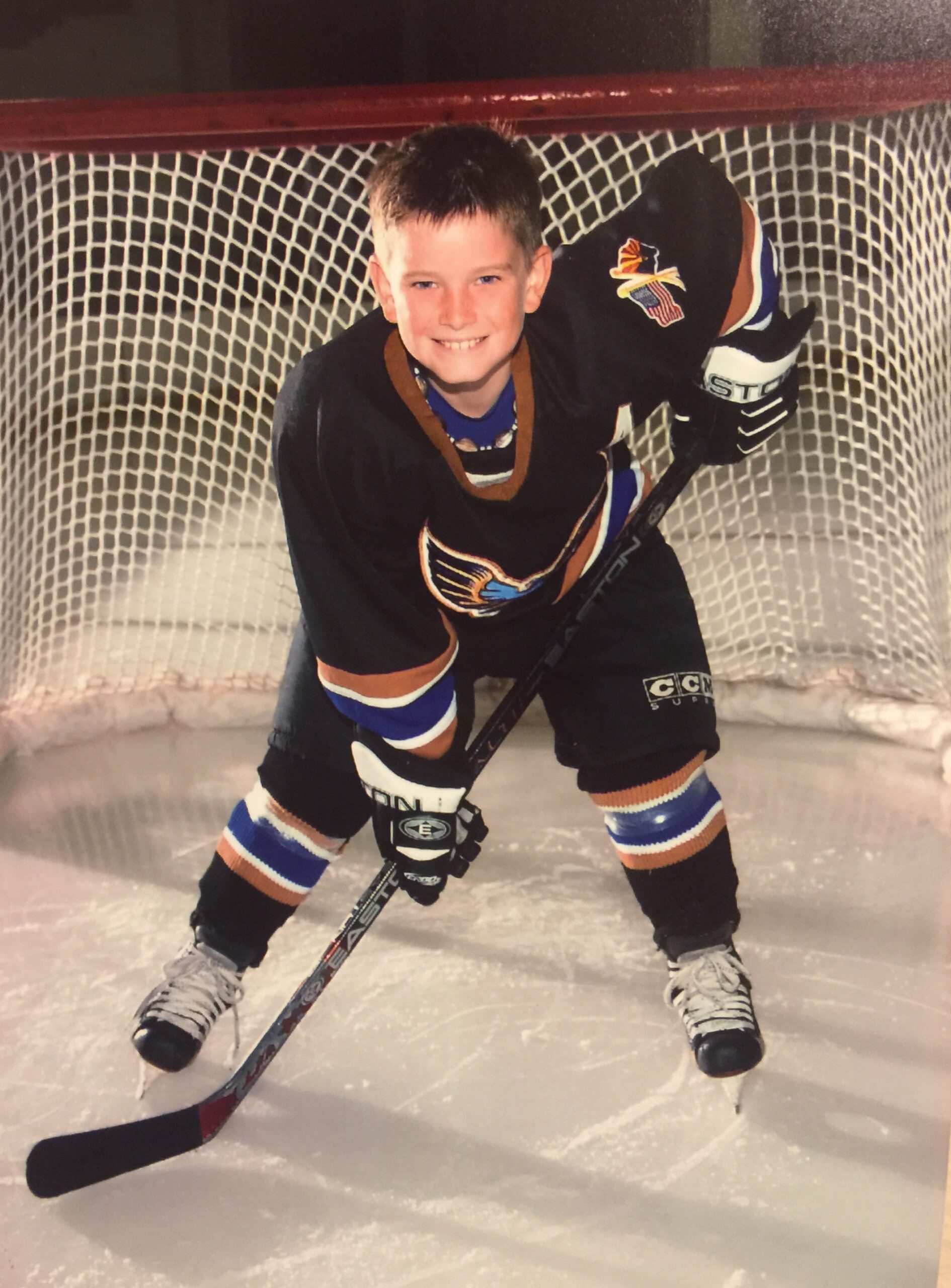
Adam Mims played goalie for ASU’s club team in the early 90s. He was a senior when Powers, another goalie, came in as a freshman. Mims began working at Oceanside in 1999 and became its GM in 2008.
When Mims first came back to the rink, ASU was playing its club games at the Ice Den in Scottsdale. Mims and Powers both felt that it was important for the student-athletes to play closer to campus.
Nobody understands Oceanside’s challenges better than Mims, but there is a part of hockey culture that both loathes and loves the old barns in which players grew up. Shane Doan remembers the natural-ice rink that he played on as a kid; the one whose frigid temperatures still elicit shudders and smiles when he talks about it.
It’s the same way with frigid Oceanside for Walker, Powers and Mims.
“We’re very proud of this place,” Mims said. “Some old rinks are just shitholes because they aren’t maintained. I like to think we have done our best with this old building to keep it in the best possible condition and give it the love it deserved.”
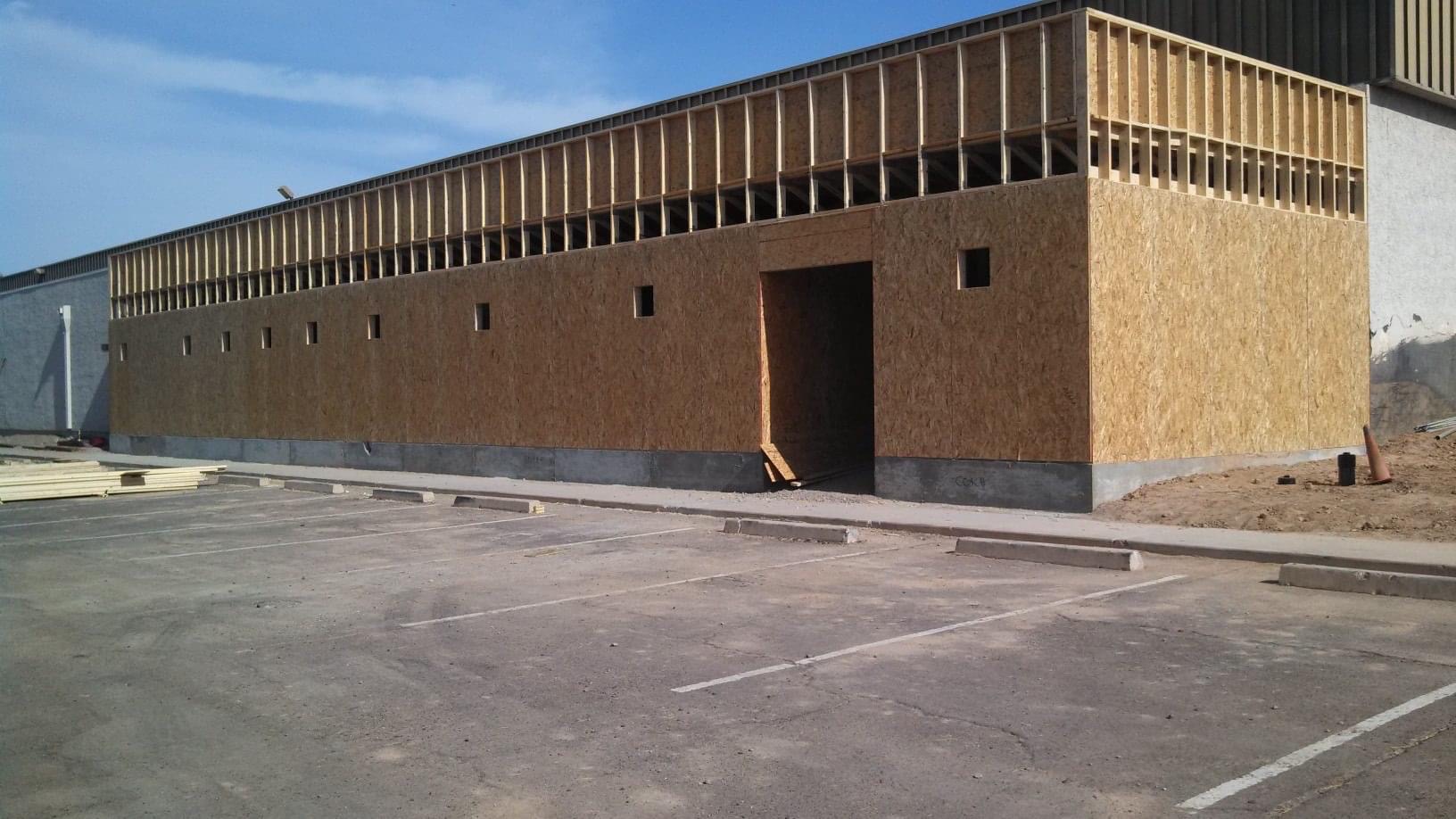
There have been plenty of additions and changes to Oceanside. When the program went Division I, Powers and Mims devised a renovation plan that ran through athletic director Ray Anderson but was not funded by ASU. It included better seating, reconfigured team areas and the infamous media bridge. Despite those additions, Oceanside maintained its quirks.
“The ice is actually great because it’s so cold in there,” Walker said. “It’s so cold that (assistant coach) Alex Hicks wears mittens on the ice, but when you play here, you learn that anything can happen at Oceanside.
“There’s been a couple times where a D will rim it in the O-zone. Instead of going behind the net because I’m not going to get there anyway because it’s a hard rim, I waited in front and then the puck hits a stanchion and the next thing you know, it’s on your stick.”
In the first few years of the arena, college teams that walked in were stunned by what they saw.
“Our very first NCAA home series here was against UConn in the fall of 2015,” Mims said. “We were excited, but we were kind of nervous because we knew a lot of eyes were on us.
“UConn walked right through the front door and we were talking to a couple of players and one of the guys says, ‘You guys have a really cool old practice barn.’ I said, ‘Thank you.’ He said, ‘So how far away is the game rink?’ I said, ‘You’re standing in it.’ Their jaws dropped.”
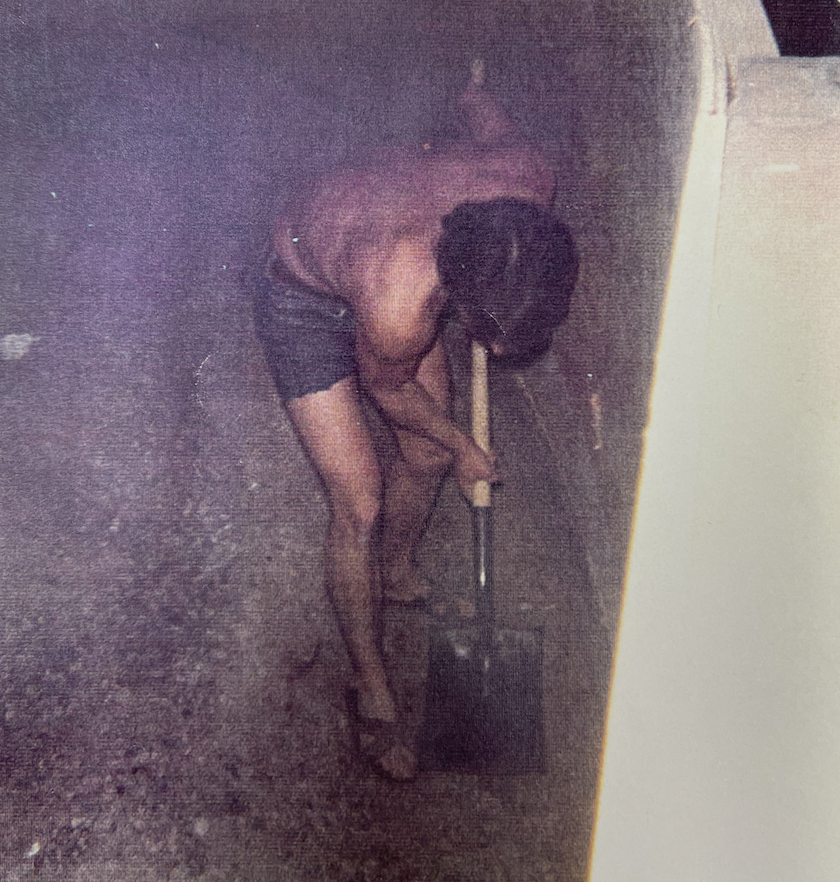
ASU enjoyed its best club days at Oceanside, including the aforementioned national championship and that streak-busting win over UA while Gene Hammett was still coaching the team.
“The captains dumped the Gatorade bucket on Gene’s head and it was so cold in the rink that the Gatorade froze and huge ice blocks slid out of the cooler and hit Gene in the head,” Powers said, laughing. “It was one of the biggest wins in the club program’s history and the coach basically gets knocked out from ice blocks.”
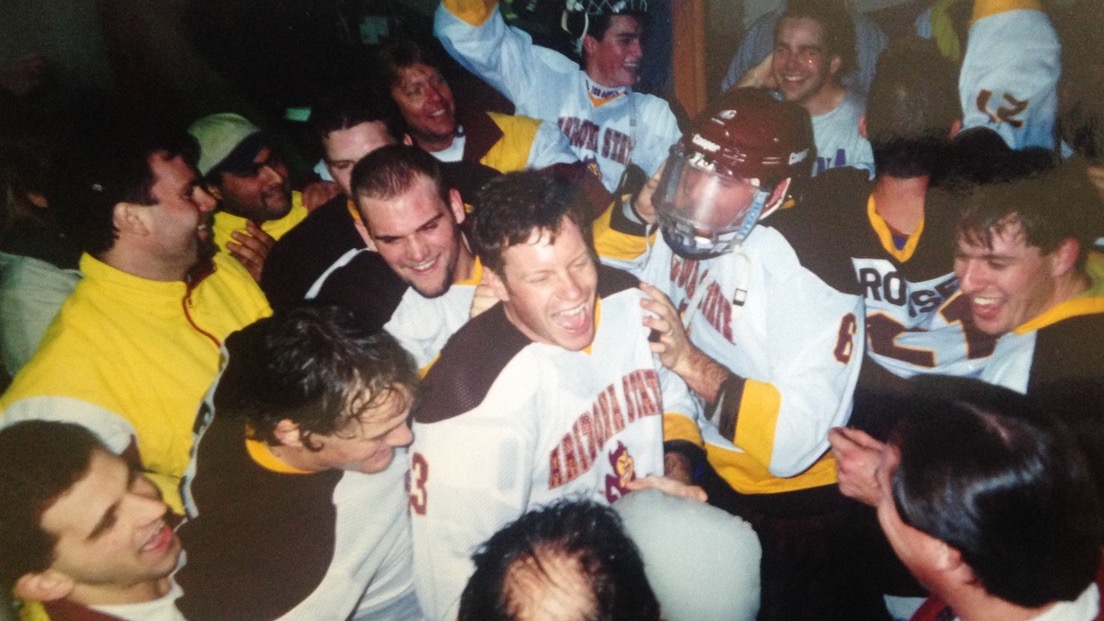
Oceanside’s history runs far deeper than ASU, however. Aside from DYHA and all of the assorted leagues that have played there, the Coyotes used the arena as their practice facility for their first two years in the Valley (1996-1998) before the Ice Den was built. Back then, Oceanside wasn’t as refined as it is today.
“The ice was very undulating,” former Coyotes captain Shane Doan said, laughing. “You could take a shot and the puck would leave the ice and hit halfway up the boards even if you shot it on the ice.
“A couple of the panes of the glass weren’t actually plexiglass. They were plastic. Somebody took a shot, missed the net and the puck went right through the glass. The glass didn’t shatter. The puck just made a hole and kept going. It would have killed somebody if they were standing outside that glass.”
Oceanside didn’t have any workout facilities at the time so the Coyotes would haul dumbbells from America West Arena (their home at the time) in the backs of their trucks and work out in Oceanside’s potholed parking lot. All these years later, Doan is watching his son, Josh, a Coyotes prospect, play the Suns Devils’ final series at Oceanside.
“He played here quite often as a kid and I’ve done a ton of things with some of the minor hockey programs here so I know this place really well,” Doan said. “I think Adam Mims has done a great job with his place and he ran this program so well.”
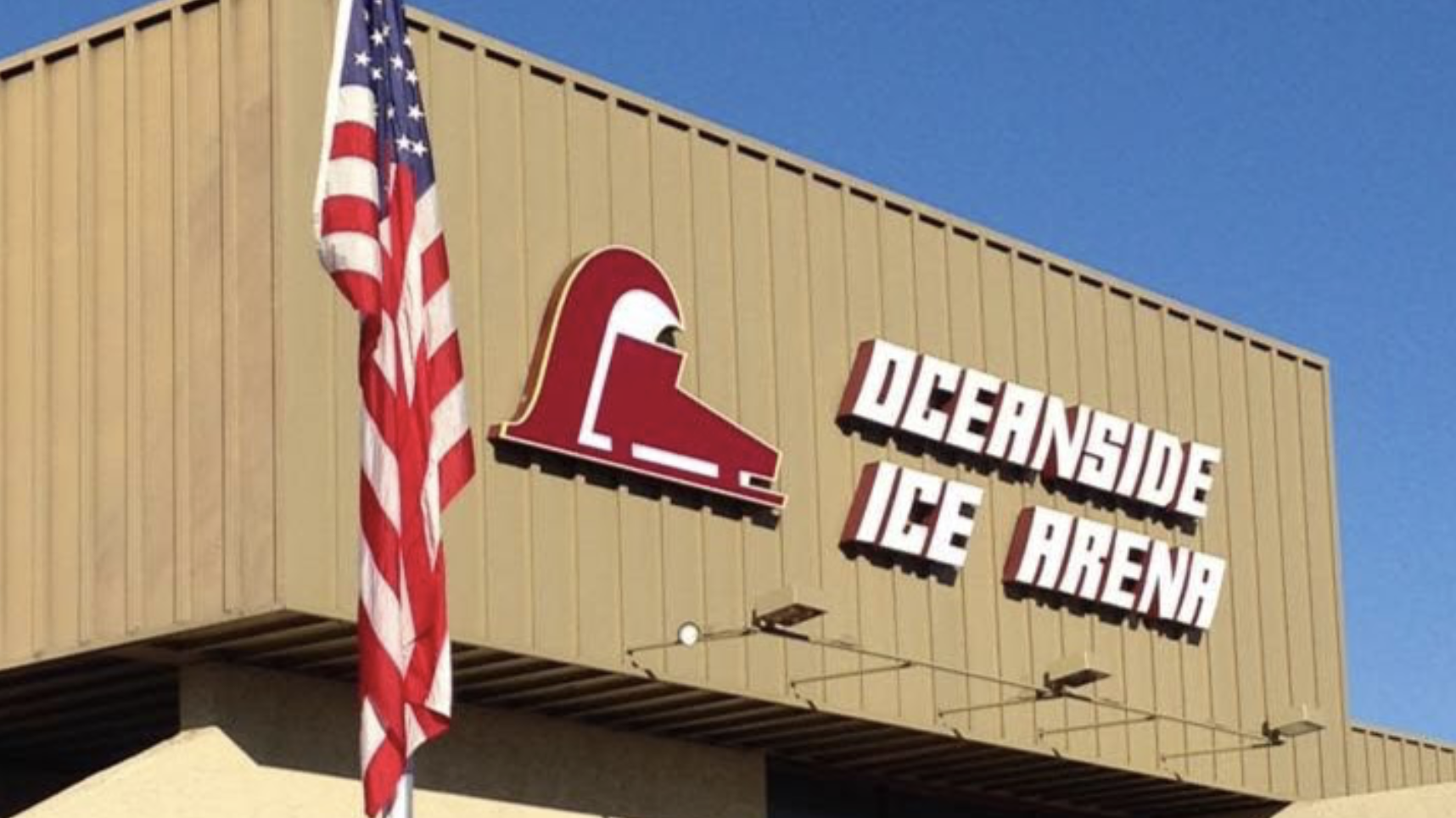
Despite its drawbacks, Powers said that Oceanside will always hold a special place in his heart because it helped ASU forge a tougher mentality while offering the team a home for the first seven years of the program.
“To me, Oceanside is about the people and the people here are great,” he said. “Mims and (director of facilities) Brad Priest and the operations guys, they have kept us on the ice literally with duct tape and elbow grease.
“After that first full NCAA season, we had a team that started to really embrace the obstacle-is-the-way mindset. All the drawbacks with Oceanside, that’s all stuff that we haven’t really talked about because we pride ourselves on turning adversity into an advantage and we’ve done it, but we’re happy that we don’t have to do it anymore.”
While some of DYHA’s teams will still play out of Oceanside for the next year, most will transition to the community rink that is attached to ASU’s multi-purpose arena. As the end approaches, Mims admits that he is filled with mixed emotions.
“I’m doing some reflecting, there’s no doubt about that,” he said. “I’ve actually heard from a lot of former teammates that are going to come to the games this weekend. Maybe I should be more sentimental about it, but I’m really, really looking forward to what’s next.
“Maintaining and operating this building is hard. There’s some major improvements that would need to be made here structurally with the sheet of ice and with the floor. We’ve really done all that we can without putting in multi-million dollar improvements so I’m 110% comfortable knowing that we have squeezed every last drop out of this place. We have run this thing right to the bone. I think everybody is really ready to take that next step.”
Follow Craig Morgan on Twitter
Comments
Share your thoughts
Join the conversation



